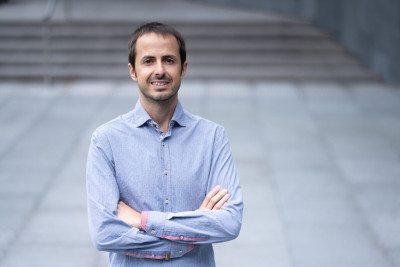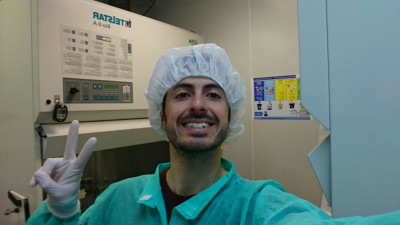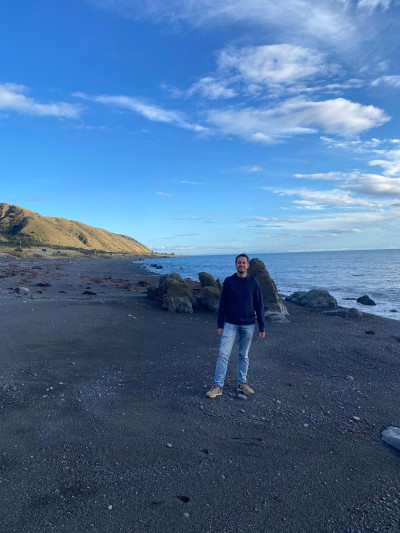Published Mar 26, 2024
 The newest member of Wellington UniVentures’ commercialisation team, Dr Albert Antolin Fontes, supports bringing Robinson Research Institute (RRI)’s cutting-edge superconducting technology to market.
The newest member of Wellington UniVentures’ commercialisation team, Dr Albert Antolin Fontes, supports bringing Robinson Research Institute (RRI)’s cutting-edge superconducting technology to market.
Albert joins Wellington UniVentures with international experience working in research and technology transfer in both Spain and the Netherlands. We asked him a few questions about research commercialisation in Europe and his ambitions for contributing to New Zealand’s innovation economy.
Tell us a bit about your background in academia, and why you decided to go into commercialisation?
I was always fascinated by living organisms, so I decided to study biomedicine. Even in undergrad, I wanted to know how science is translated into business, and I specialised in pharmaceutical industry and biotechnology. Later, I did the biomedical science master’s at Maastricht University in the Netherlands, and then the PhD thesis in the IRB Barcelona, where I researched mitochondrial gene translation.
What I loved about university was that most of my professors were at the top of their fields, so we were learning about the very latest scientific advancements. I think universities should try to be more practical, and I enjoyed all opportunities I got during my degree to apply what I was learning.
While academia often values specialisation and individualism, I thrive on diverse challenges and collaboration. Working in research translation, I get to work on a wide variety of projects, seeing them through from more fundamental science to business strategy and company creation.

What was your previous role at the Biomedical Research Institute Institut d'Investigació Biomèdica de Girona (IDIBGI)?
I joined IDIBGI to manage a project aimed at better aligning the institute with Horizon Europe, EU's key funding programme for research and innovation.
I started in the research office, which helped me understand how research is funded, but I quickly moved into the technology transfer office. It was an exciting place to work. In my time there, I managed commercialisation projects at all different TLR levels, and contributed to the sale of one of our spinouts to a pharma company. I facilitated industry collaborations and contract research agreements with start-ups and more established pharma companies. Another highlight was delivering a series of innovation and entrepreneurship seminars for researchers at the Institute.
But what I’m most proud of is having contributed to building a thriving innovation ecosystem in my hometown, and to have helped several projects go closer to patients and market.
How does the technology transfer environment in NZ compare to Spain?
I’ve only been here a few months but I've already noticed that, in New Zealand, we are really proactive in advancing innovation. In Spain, especially among the small research institutes we are more reactive and require that the researchers approach us and do more of the commercialisation work themselves.
New Zealand also invest more money and personnel to commercialisation projects. The best thing about Europe in the tech transfer environment is that the ecosystem is highly interconnected, and it is also supported by Horizon Europe. The good news is that NZ can now participate too!
What excites you most about joining Wellington UniVentures?

I am extremely excited to continue helping researchers bridge the gap between the research and its use in the real world.
It’s fantastic getting to work with the Robinson Research Institute. RRI’s research into superconductivity is among the best in the world. Not only does it do great science, but its researchers really care about bringing their technology to market for the benefit of New Zealand and the world.
What's even more exciting is that I think RRI has established a virtuous circle where innovation can thrive. Its leadership team emphasises the importance of applied research to its early career researchers. RRI researchers get to work with international industry and collaborators on technology that makes an impact in the real world. Once they graduate, they often go into industry and keep strong ties with RRI, and sometimes even found new companies that employ RRI researchers.
We’re lucky to have a world-leading institute in our backyard, and I’m looking forward to supporting them to take more of their research to market.
